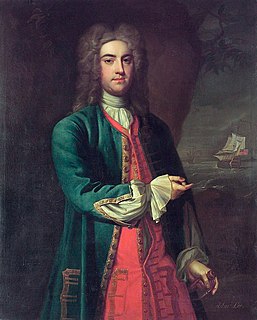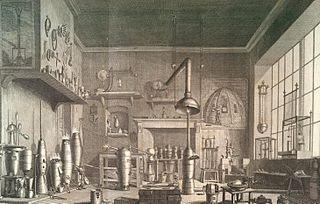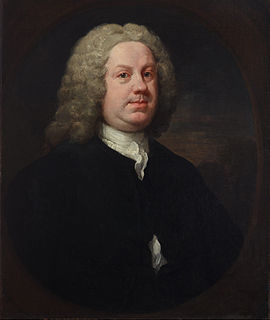Life
Born in Hampshire, Langrish was trained as a surgeon. In 1733 he was in practice at Petersfield, Hampshire. On 25 July 1734 he became an extra licentiate of the College of Physicians, and began practice as a physician. He was elected a Fellow of the Royal Society on 16 May 1734, and practised in Winchester. He graduated M.D. in 1748. [1]
Langrish died at Basingstoke, Hampshire, on 12th November 1759, buried at Winchester Cathedral on 28 November 1769.
Works
Langrish published A New Essay on Muscular Motion (1733) in which the structure of muscles and the phenomena of muscular contraction were discussed. In 1735 he published The Modern Theory and Practice of Physic, including original clinical. He described experiments in the analysis of excreta and the examination of the blood. A second edition appeared in 1764. [1]
In 1746 Langrish published Physical Experiments on Brutes, in order to discover a safe and easy Method of dissolving Stone in the Bladder. Experiments on cherry laurel water were included, and he concluded that this poisonous liquid may be used in medicine. He delivered Croonian lectures on muscular motion before the Royal Society in 1747, and they were published in 1748. In the same year he published also Plain Directions in regard to the Small-pox. [1]

Fitzroy Henry Lee was a British officer of the Royal Navy who also served as the Commodore Governor of the Colony of Newfoundland.

John Kirby was an English land surveyor and topographer. His book The Suffolk Traveller, first published in 1735, was the first single county road-book.

William Lewis FRS was a British chemist and physician. He is known for his writings related to pharmacy and medicine, and for his research into metals.

Thomas Balguy (1716–1795) was an English churchman, archdeacon of Salisbury from 1759 and then Archdeacon of Winchester.
Thomas Scott (1705–1775) was an English nonconformist minister, known as a writer of hymns.

John Hoadly (1711–1776) was an English cleric, known as a poet and dramatist.

Benjamin Hoadly (1706–1757) was an English physician, known also as a dramatist.
William Rutty M.D. (1687–1730) was an English physician.
Christopher Johnson or Jonson (1536?–1597) was an English physician, educator and neo-Latin poet.

Richard Warren (1731–1797) was an English physician, a prominent society doctor in the later 18th century.
William Henry was an Anglo-Irish Anglican priest, who became Dean of Killaloe and Fellow of the Royal Society.
Thomas Lawrence (1711–1783) was an English physician and biographer, who became President of the Royal College of Physicians in 1767.
Daniel Peter Layard (1721–1802) was an English physician and midwife.
Sir Richard Manningham M.D. (1690–1759) was an English physician and man-midwife, now remembered for his involvement in the Mary Toft hoax.

John Thorpe (1682–1750) was an English physician, antiquarian and Fellow of the Royal Society.
Mary Latter was an English poet, essayist and playwright of the 18th century.
William Hillary M.D. (1697–1763) was an English physician, known as an author on tropical diseases.
John Hildrop was an English cleric, known as a religious writer and essayist. Hildrop authored one of the earliest works on animal rights.
Andrew Reid was a Scottish writer.
This page is based on this
Wikipedia article Text is available under the
CC BY-SA 4.0 license; additional terms may apply.
Images, videos and audio are available under their respective licenses.
![]() This article incorporates text from a publication now in the public domain : Lee, Sidney, ed. (1892). "Langrish, Browne". Dictionary of National Biography . Vol. 32. London: Smith, Elder & Co.
This article incorporates text from a publication now in the public domain : Lee, Sidney, ed. (1892). "Langrish, Browne". Dictionary of National Biography . Vol. 32. London: Smith, Elder & Co.






